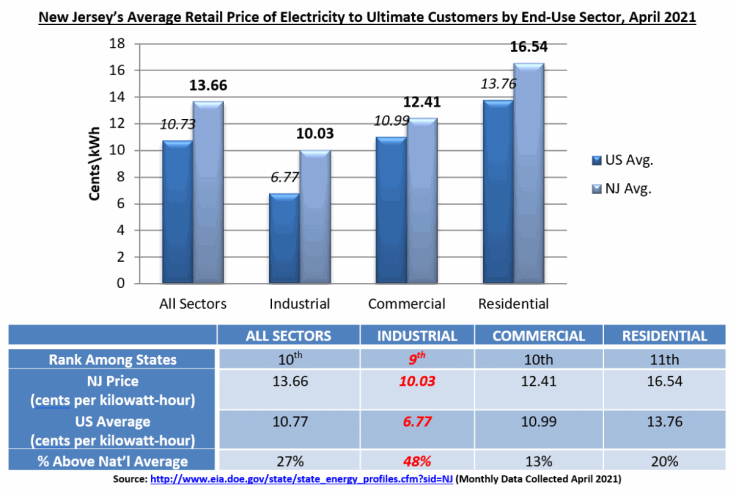As New Jersey continues to consider and implement more renewable energy certificates and energy credits (i.e., Solar Renewable Energy Certificate (SREC), Zero Emissions Credit (ZEC), and Offshore Wind Renewable Energy Certificate (OREC)), ratepayers continue to subsidize these programs at an alarming rate. These programs have added billions of dollars in additional energy costs that are passed on to the ratepayer. New Jersey’s industrial energy rates, despite being 4% lower compared to rates in 2018, remain almost 50% above the national average; however, residential rates are up almost 6% per kilowatt-hour compared to 2018. The impact of these new energy programs and other fees and taxes, exclusive to New Jersey, keep our state electricity rates uncompetitive when compared to other states.
Energy Costs
Energy represents a significant share of manufacturing costs for the U.S. business of chemistry. For some energy-intensive products, energy for both fuel and power needs and feedstocks account for up to 85% of total production costs. Because energy is a vital component of the industry’s cost structure, higher energy prices can have a substantial impact on the business of chemistry. Overall energy costs represent around 10% of the value of industry shipments. Moreover, value added by the business of chemistry is equivalent to five times this energy cost, which is just one of many inputs, including other raw materials and services that the business of chemistry purchases from other industries.
